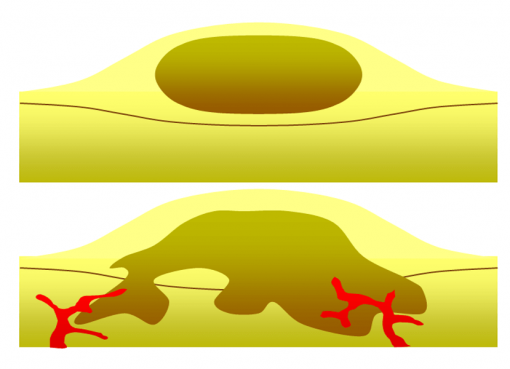Prof. Chandana Choudhury Barua
Department of Pharmacology & Toxicology,
College of Veterinary Science, Khanapara
I always look for such a topic which is new for me, so that I can delve more into it and enrich myself. Then share it with the readers, those who are not familiar. So aphantasia aroused my interest. We are familiar with fantasy, so it’s originally written as aphantasia means absence of mental image from Latin. Quite interesting!
When a person closes his eyes and is asked to picture a rainbow, if he can picture it, fine. If not, s/he may have aphantasia. Aphantasia is the inability to voluntarily create a mental picture in our head. People with aphantasia are unable to picture a scene, person, or object, even if it’s very familiar.
Aphantasia is still inadequately understood. Way back in 1880, Sir Francis Galton reported that some men in a group of 100 were unable to create a mental image of their breakfast table. Later on, cognitive neurologist Adam Zeman coined the term aphantasia in 2015. It is derived from the ancient Greek words “a” meaning “without” and “phantasia” meaning “imagination.” The cause of aphantasia is yet to be discovered. Using functional MRI, it was detected that people with aphantasia exhibit different brain patterns compared to people without aphantasia when trying to form mental images. As it is still obscure, till date, no cure has been discovered. So it will be a new topic of research in future.
Approximately, 2.1 to 2.7 percent of the population may have aphantasia, but there still haven’t been any large-scale studies. Interestingly, many people with aphantasia may not know that they experience the world differently than other people and go on to live normal lives.
The famous personalities having this disorder are: Ed Catmull (co-founder of Pixar and former president of Walt Disney Animation Studios), James Harkin (British podcaster and television writer), Richard Herring (British comedian and podcaster), Glen Keane (animator, author and illustrator), Mark Lawrence (fantasy author), Yoon Ha Lee (science fiction author), Derek Parfit (British philosopher), Blake Ross (co-creator of the web browser Mozilla Firefox), Michelle Sagara (fantasy author) and Zelda Williams (American actress, director, producer and writer). In April 2016, Ross published an essay describing his own aphantasia and his realization that not everyone experiences it. The essay gained wide circulation on social media and in a variety of news sources.
Our memories are often tied up in images, think back to a wedding or first day at school. The researchers also found some evidence that people with aphantasia might develop strengths in other areas. A total of 14 participants reported strengths in verbal, mathematical, or logical ability. Some other symptoms, people with aphantasia report, are decreased imagery involving other senses like sound or touch, less vivid memories, less vivid ability to imagine future scenarios, and trouble with facial recognition.
Aphantasia can be congenital or developed later in life due to brain injury or psychological conditions. The ability to create a mental image is complex and involves many areas of the brain. The exact neural basis of aphantasia isn’t well-understood, but it is thought that some areas of the brain involved in visual imagery may be underactive. People with aphantasia experience mental imagery but can’t access the image in their conscious thoughts. Also damage to a wide range of areas in the brain can lead to aphantasia. A 2020 case study describes an architect who developed aphantasia after a stroke affecting the area supplied by the posterior cerebral artery.
Some researchers have theorized that aphantasia could have a psychological origin since it’s also associated with depression, anxiety and dissociative disorders. However, more research is needed to understand the link. People with conditions like schizophrenia can have hallucinations so vivid that they have trouble distinguishing mental images from reality. On the other hand, people with aphantasia have no ability to create mental images. Many people with aphantasia don’t even know they have it until adulthood.




